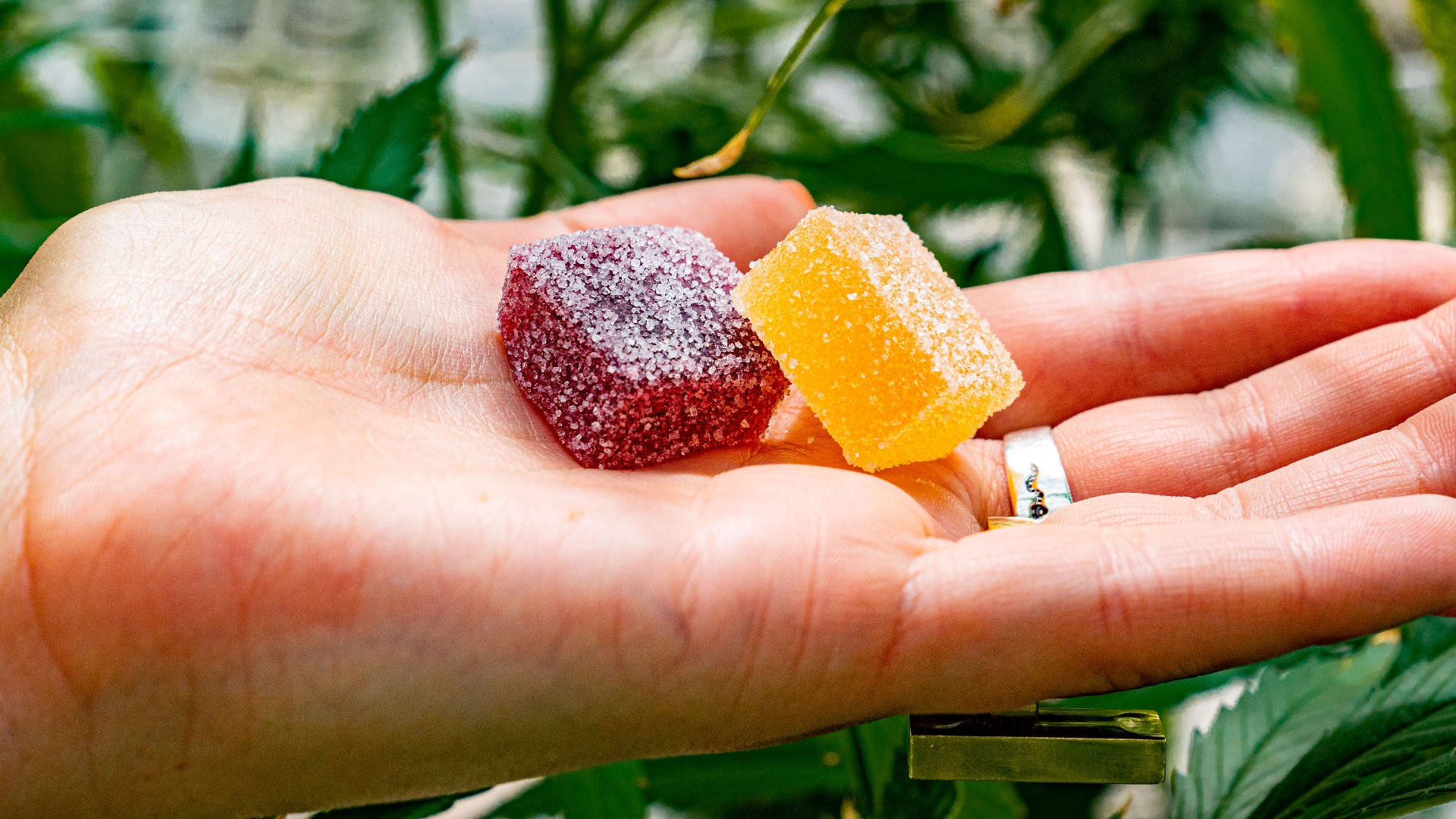ST. LOUIS — There’s a disturbing trend happening among some of our youngest kids: accidental poisoning after eating cannabis gummies.
At the Missouri Poison Center, the calls for help are nonstop. Most cannabis-related calls are from parents whose children ate gummies by mistake.
“It's a slope that keeps getting higher," said Julie Weber, director at the Missouri Poison Center.
It’s often because caregivers accidentally leave their edibles out in the open. Julie Weber leads the team that responds to their calls for help. In her 33 years at the Missouri Poison Center, she said she had never seen a recreational substance have such an impact in such a short time.
“There could be so many more out there because our numbers are based on reports to us," Weber said.
So far this year, the Missouri Poison Center has seen a record number of kids ages 5 and under exposed to cannabis edibles like gummies: a total of 168 cases from Jan. 1, 2023, to Sept. 30, 2023.
Cases have spiked over the years. Weber said it’s a trend partly driven by the legalization of recreational marijuana. Recreational marijuana was legalized in Missouri on Dec. 8, 2022. Recreational marijuana was legalized in Illinois on Jan. 1, 2020.
According to the Missouri Poison Center, the following cannabis exposures were reported in children ages 5 and under in recent years:
- 2018 - 7
- 2019 - 26
- 2020 - 57
- 2021 - 102
- 2022 - 125
- January through September 2023 - 168
We asked the Missouri Poison Center whether they have a breakdown or estimates on how many cannabis-related cases involve products from legal, licensed dispensaries. Weber told us that information is not readily available or provided by the caller.
“The danger in the gummies really is in the amount ingested and the concentration of the cannabis or THC in that product," Weber said. “With a young child, it can start out with maybe some dizziness, drowsiness, kind of loss of balance.”
More serious symptoms include breathing problems and seizures.
There are preventative measures manufacturers can take to make sure kids aren't consuming the edibles by accident.
“It can be marketed more with warning signs or even the state may want to consider one universal warning sign," Weber said.
The National Cannabis Industry Association tells the I-Team that Missouri and Illinois are similar to other states when it comes to packaging regulations. Packages must have a THC warning symbol, although there’s no standard one. They must be more difficult for kids to open, with twist-to-open containers for example.
The National Cannabis Industry Association said consumers should only buy cannabis products from licensed, regulated facilities.
But our investigation finds that’s not always happening. That’s largely due to a growing black market. Weber said more and more people are buying untested, unlicensed products online that do not have the same requirements as products from regulated dispensaries.
“I think it’s important to realize that in Missouri there are essentially three marketplaces for marijuana products," said Jack Cardetti, a spokesperson with the Missouri Cannabis Trade Association. In an email, he told us: "There is first the illicit market, where there are usually no warning signs on products and no childproof packaging. There are also hemp-derived products, including Delta 8 and Delta 9, that have psychoactive properties, but that are essentially unregulated in Missouri and therefore sold at convenience stores and CBD stores with few if any warning signs. And then of course there is our industry, which is one of the most heavily regulated in the state and where it’s mandatory that these lab-tested products have required warning signs and childproof packaging."
Weber said more than one person should be held responsible for the influx of accidental poisoning.
"I think it's a shared responsibility that we need, a give-and-take between both the manufacturer as well as the consumer," said Weber.
How to prevent accidental cannabis exposure
Here’s what Weber said caregivers can do to prevent their child from accidentally eating edibles:
- Keep edibles out of sight from kids in a lock box or another hard-to-open container.
- Keep edibles in the original packaging. In case of overdoses, it’s easier to know what was actually eaten.
- And avoid consuming edibles around kids, who mimic behavior.
Just recently the I-Team talked with a mother of a teen who ate cannabis gummies at a St. Louis high school. She said she thought it was candy and ended up in the ER.
If you need to call the Missouri Poison Center, call 800-222-1222 for free, confidential, non-judgmental help.
To share a tip with the 5 On Your Side I-Team, use the form below or send us an email at tips@ksdk.com.

